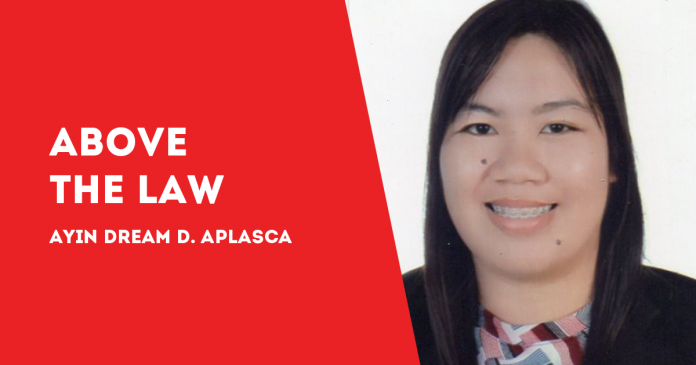
EVERY year, the month of August is commemorated as the International Humanitarian Law (IHL) Month. Many human rights advocates celebrate IHL Month to highlight the call for peace and safeguard our rights and dignity, especially of those who are affected by armed conflict.
For the last two weekends, I was able to somewhat take part in this celebration by gracing the invitation of the Philippine Red Cross – Iloilo Chapter to judge this year’s International Humanitarian Law Inter-school Debate Series.
I met a lot of the brightest minds in the competition – arguing who among them was the best and had the best stand on the proposition.
What caught my attention during the competition was how the participants distinguished international courts and tribunals. I believe it is important for us to know their functions, jurisdictions, and how they work. One of the most popular international courts is the International Criminal Court (ICC).
The ICC is an independent judicial body that may exercise jurisdiction over persons charged with genocide, crimes against humanity, war crimes, and the crime of aggression. It is in The Hague, The Netherlands. It was established by the Rome Statute and created as an independent judicial body distinct from the United Nations (UN).
There are four main crimes that the ICC has jurisdiction.
The first crime is genocide. It is characterized by the specific intent to destroy in whole or in part a national, ethnic, racial or religious group by killing its members or by other means. It may cause serious bodily or mental harm to members of the group, deliberately inflicting on the group conditions of life calculated to bring about its physical destruction in whole or in part, imposing measures intended to prevent births within the group, and forcibly transferring children of the group to another group.
The ICC can also hear cases against humanity. Under the Rome Statute, there are at least 15 forms of crime against humanity, namely, murder, rape, imprisonment, enforced disappearances, enslavement – particularly of women and children, sexual slavery, torture, apartheid and deportation.
War crimes are also under its jurisdiction. These are crimes that breach the provisions of the Geneva Conventions. It may include the use of child soldiers, killing or torture of persons such as civilians or prisoners of war, and intentionally directing attacks against hospitals, historic monuments, or buildings dedicated to religion, education, art, science, or charitable purposes.
Lastly, the ICC has jurisdiction over the crime of aggression. It is the use of armed force by a State against the sovereignty
The process starts with the preliminary examinations where the Office of the Prosecutor determines whether the evidence is sufficient to start an investigation. If there is, the Prosecution requests the ICC judge to issue an arrest warrant or summons to appear. This is followed by the pre-trial and trial stages where the suspect’s identity is confirmed, and the Prosecution must prove beyond reasonable doubt the guilt of the accused. An appeal is also available.
Sentences are served in countries that have agreed to enforce ICC sentences.
The ICC provides the world with a permanent court that can act to prosecute the culprits if domestic courts fail to do so. It has a significant role in enforcing the provisions of the International Humanitarian Law as the said law regulates armed conflicts./PN







